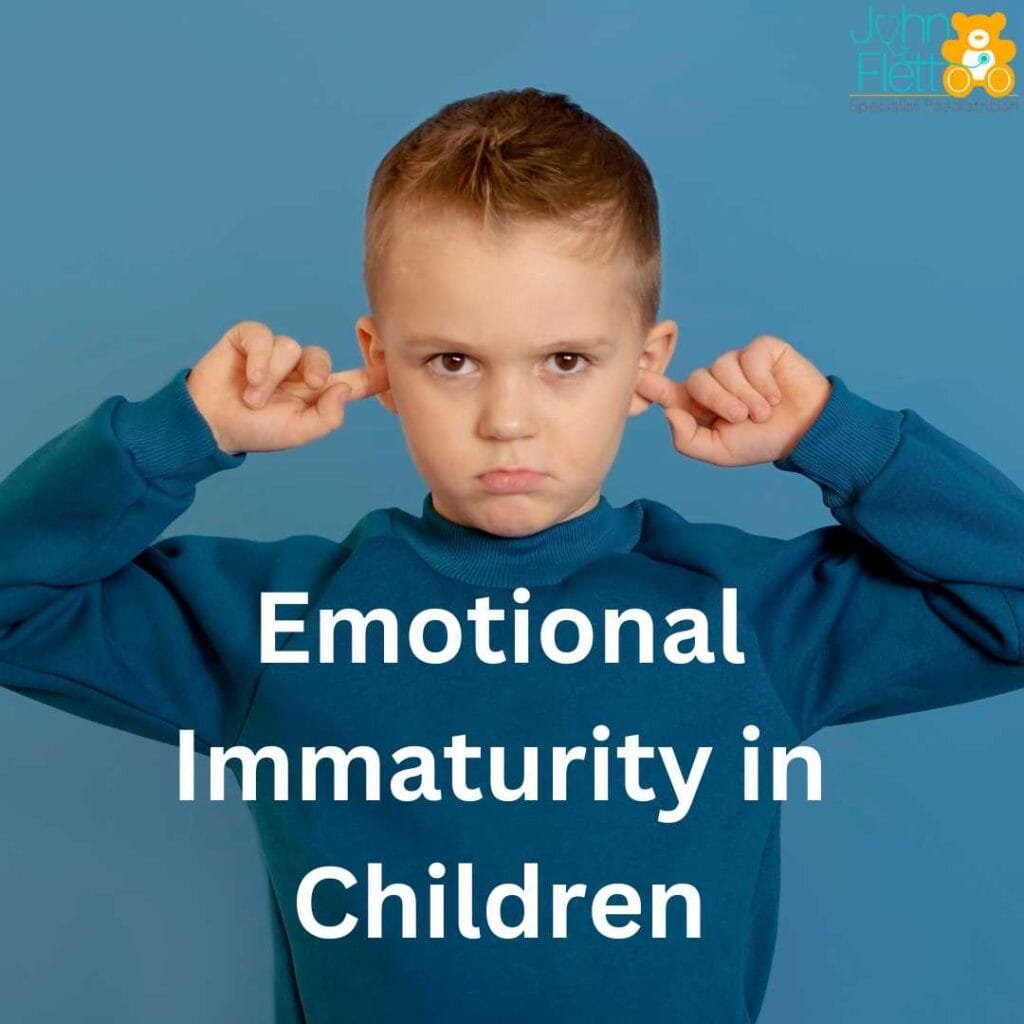Understanding Emotional Immaturity in Young Children: A Guide for Parents and Teachers

Emotional immaturity in young children can be a concern, especially in a school setting where the ability to regulate emotions and interact socially is essential. It’s important to explore whether emotional immaturity is a temporary phase, a stand-alone trait, or part of a broader issue. This guide aims to help parents and teachers understand this behaviour, consider its potential causes, and address it effectively, while also cautioning against grade retention as a solution.
What is Emotional Immaturity?
Emotional immaturity refers to behaviours that suggest a child is less able to regulate their emotions or handle social interactions compared to peers of the same age. For example, a child may have frequent outbursts, struggle to manage frustration, or rely heavily on adults for reassurance.
While emotional immaturity can sometimes be an isolated behaviour, it is often linked to developmental or psychological challenges that require attention and understanding.
Causes of Emotional Immaturity
1. Developmental Variation
Children grow and develop at different rates, and some may simply take longer to reach emotional milestones. This is not unusual and often resolves with time, support, and practice.
2. Environmental Factors
Stressful home environments, inconsistent routines, or limited opportunities for social learning can temporarily affect emotional regulation.
3. Part of a Broader Issue
Emotional immaturity can also be a symptom of a larger condition, such as:
- ADHD (Attention-Deficit/Hyperactivity Disorder): Children with ADHD often experience delays in emotional regulation, impulsivity, and social awareness, making them appear less mature than their peers.
- Anxiety Disorders: Chronic anxiety can overwhelm a child’s ability to process emotions, leading to avoidant behaviours, emotional outbursts, or clinginess.
- Autism Spectrum Disorder: Children on the spectrum may find it difficult to interpret or express emotions and manage social interactions, which can be misinterpreted as immaturity.
- Learning Disabilities: Struggles with academics can cause frustration, leading to emotional reactions that seem out of sync with a child’s age.
- Trauma or Attachment Issues: Early adverse experiences may affect a child’s emotional development, resulting in reactive or immature behaviours.
How to Support a Child with Emotional Immaturity
1. Observation and Understanding
- Document specific behaviours, triggers, and patterns. This can help identify whether emotional immaturity is temporary or part of a larger concern.
2. Professional Input
- Consult teachers, school counsellors, or healthcare professionals for insights. A comprehensive evaluation can determine if there is an underlying condition that requires support.
3. Social and Emotional Learning
- Teach children to identify and express emotions with words.
- Provide opportunities for practising self-regulation, such as role-playing scenarios or mindfulness activities.
- Reinforce positive behaviours with praise and consistent routines.
4. School and Home Collaboration
- Open communication between parents and teachers ensures consistent approaches to managing emotional immaturity.
- Develop an individualised plan that incorporates strategies to build emotional resilience.
5. Focus on the Root Cause, Not Grade Retention
While it may seem logical to retain a child in their current grade to give them more time to “catch up,” research consistently shows that this approach is not effective in addressing emotional immaturity. Retention may:
- Lower self-esteem by highlighting the child’s differences.
- Exacerbate existing issues, such as anxiety or frustration.
- Delay rather than resolve underlying challenges.
Instead, focus on identifying and addressing the root cause of the behaviour. Providing tailored support and interventions can help the child develop the skills they need to thrive, regardless of their grade level.
Why Retention is Not the Answer
It’s important to recognise that emotional immaturity is not simply a matter of time but a developmental and social learning challenge. Children need guidance, support, and tools to grow emotionally, not just more time in the same environment.
Retention often addresses the symptom (emotional immaturity) rather than the cause (underlying conditions such as ADHD, anxiety, or developmental delays). Instead, collaborative efforts between parents, teachers, and professionals can equip the child with the necessary coping mechanisms and skills to succeed.
Final Thoughts
Emotional immaturity in young children is a common concern, but with the right understanding and interventions, it can be effectively managed. Whether the behaviour is part of typical development or linked to a broader issue, the key lies in addressing the underlying causes and providing consistent support.
Parents and teachers working together can create an environment that fosters emotional growth, builds resilience, and helps every child reach their full potential—without resorting to grade retention, which may do more harm than good.
By focusing on the child’s needs and strengths, we can guide them through their challenges and help them thrive, both emotionally and academically.

Responses